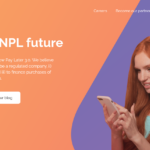In late June, Meta, the parent company of social media giants such as Facebook and Instagram, quietly updated its privacy policy. This change has profound implications for the millions of users across the Western Balkans, as it expands Meta’s ability to utilize publicly shared content for training its artificial intelligence (AI) systems.
Unannounced Policy Changes
Without any formal announcement or explanation, Meta revised its privacy policy on June 26th. The new terms state that Meta will use data from publicly shared posts, comments, photos, and videos to develop AI capabilities. This shift in policy has gone largely unnoticed by users in the Western Balkans, who remain uninformed about the significant ways their data might now be used.
Details of the New Policy
The updated privacy policy outlines a range of data Meta collects and processes. It includes publicly shared content such as profile information, usernames, profile photos, comments, videos, and audio shared on its platforms. This data will now contribute to creating new AI-driven services that generate text, sound, images, and videos.

A Broader Scope of Data Collection
Meta’s policy highlights the extensive array of personal information it can access. As lawyer Felix Mikolasch explains, Meta has unique access to vast amounts of sensitive data through its platforms like WhatsApp, Instagram, and Facebook, which together host billions of user profiles.
Mikolasch raises two critical concerns regarding the updated policy: the absence of user consent for using data in AI training and the lack of detailed information about the AI models being developed. “Meta states they can use this data for any purpose related to AI, but this offers no specific information to users,” Mikolasch remarks. He emphasizes the need for greater transparency from the company.
Implications for Users
For users, the most crucial part of any privacy policy is understanding what data is collected and how it is used. Meta’s recent changes focus on these aspects, yet they fall short of providing clear and comprehensive information. Users are now left in the dark about how their publicly shared content might be utilized in AI development.
In conclusion, Meta’s updated privacy policy represents a significant shift in how user data is leveraged for technological advancements. As the company continues to evolve its AI capabilities, it is imperative for users to stay informed about how their personal information is being used and to advocate for greater transparency and control over their data.






